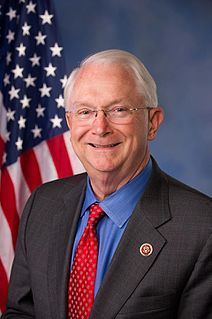Top 828 Housing Quotes & Sayings
Explore popular Housing quotes.
Last updated on April 14, 2025.
Housing has always been a key to Great Resets. During the Great Depression and New Deal, the federal government created a new system of housing finance to usher in the era of suburbanization. We need an even more radical shift in housing today. Housing has consumed too much of our economic resources and distorted the economy. It has trapped people who are underwater on their mortgages or can't sell their homes. And in doing so has left the labor market unable to flexibly adjust to new economic realities.
While it's absolutely important that we build housing for our low-income residents, when we are talking about opening up hundreds of sites for housing, we should be trying to build affordable housing for all of our residents struggling to pay rent. That means housing for teachers, for nurses, for janitors.
The Boston's government approves housing projects every month and we're constantly approving opportunities to build more housing. And Boston is one of the hottest cities in America where people want to live. And it's important that we continue to build this housing and to keep up with the demand that we have in the communities.
You know, even in the economic downturn in Alberta, there are restaurants in Calgary, and even in Canmore up the mountain, that cannot open for lunch because they cannot find staff. And they cannot find staff because there's nowhere for those people to live. And so safe and decent housing, market housing, subsidized housing, the whole bit, we really, really need to have our heads on straight on this, and we don't yet.
Too often, the perspectives on housing come from journalists, politicians and property experts, with a focus on the extreme ends of the market. Through the FOURWALLS Film Project, we want to get an accurate picture of the London housing situation through the eyes of the people that live there, and promote discussion around it.
Our Government is proud to support the Provincial Metis Housing Corporation and its local partners, like Yorkton Parkland Housing, and all of the important work they do in our province to help those in need. With a roof over their heads, all Canadians can prosper as we work together towards eliminating homelessness.
I can remember the time when, if we wanted a house or housing, we relied on private enterprise. In fact, Americans built more square feet of housing per person than any other country on the face of the earth. Despite that remarkable accomplishment, more and more people are coming to believe that the only way we can have adequate housing is to use government to take the earnings from some and give these earnings, in the form of housing, to others.
Housing in New York City has become too expensive for many average wage earners, let alone people with marginal incomes, who find themselves displaced to far-flung neighborhoods or to the streets. Racist discrimination in housing, which has been around for decades and follows centuries of slavery, has exacerbated the housing affordability crisis for people of color.
The standard of 'affordable' housing is that which costs roughly 30 percent or less of a family's income. Because of rising housing costs and stagnant wages, slightly more than half of all poor renting families in the country spend more than 50 percent of their income on housing costs, and at least one in four spends more than 70 percent.
By laying the groundwork for a system centered on home ownership rather than the public housing popular in Europe, the New Deal made possible the great postwar housing boom that populated the Sun Belt and boosted millions of Americans into the middle class, where, ironically, they often became Republicans.
The bottom line for housing is that the concerns we used to hear about the possibility of a devastating collapse—one that might be big enough to cause a recession in the U.S. economy—while not fully allayed have diminished. Moreover, while the future for housing activity remains uncertain, I think there is a reasonable chance that housing is in the process of stabilizing, which would mean that it would put a considerably smaller drag on the economy going forward.
We're moving from a generation who gave little thought as to the built environment and accepted housing that was neither pleasant to look at, nor to live in or around, to a new century where there's a real desire for housing that's affordable, flexible, and places community at the heart of its thinking. For architects and the public it's an enticing prospect.










































